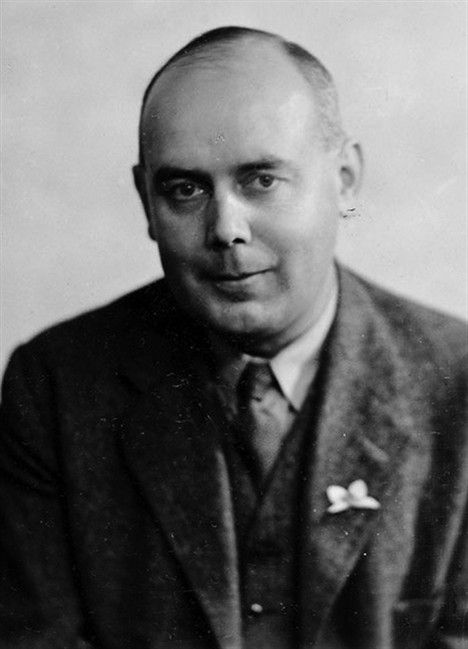VANCOUVER – To his neighbours on Saltspring Island, B.C., he was an avid gardener and a history writer who lived a quiet life with his wife and children.

But to the British spy agency MI-5, he was a wartime agent who exposed hundreds of Nazi sympathizers and intercepted secrets meant for Gestapo eyes.
Records released by the British National Archives reveal the identity of the spy code-named Jack King as Eric Roberts, an unassuming banker who retired and came to Canada in 1956. He died on the island in 1972 at the age of 65.
“We’re still reeling from it,” his daughter, Christa McDonald, said Tuesday from her home in Qualicum Beach, B.C., after learning of the release of the documents.
“We’re absolutely so happy that he’s getting some recognition for his work but, at the same time, it’s been quite emotional for the family.”
Declassified documents posted online by the British archives on Friday say Roberts posed as a Gestapo officer, gathering information from Nazi sympathizers in Britain from 1942 to 1945 to ensure it did not reach the enemy.
Among hundreds of pages of transcribed conversations involving Jack King is information meant to aid a German invasion of Britain and an appeal for a renewed blitz by German bombers.
It is believed that Roberts was one of the inspirations for spy writer John Le Carre’s famous character George Smiley.

Get breaking National news
To McDonald, he was a great father for her and her two brothers and a humble man.
“Our family life was different because of his work, but having said that, we had a great family life,” said McDonald, who has one living brother with whom she has spoken about the revelations.
They were aware to a certain degree that their father led a dangerous second life.
“We knew to keep quiet when we were outside the house,” she said.
The archive records say Roberts joined the service July 4, 1940, but his daughter said he began working for MI-5 at 17 in a minor role.
Officially, the archive records show that on June 8, 1940, Lt. Colonel Allan Harker wrote to Westminster Bank Limited to request Roberts’s release to the security service’s employ.
His unassuming bank job was part of his cover, his daughter said.
“My father was highly intelligent. He really was. And when I think back now … to lead a double life for so long, when you think about it, is quite amazing,” McDonald said. “He was very witty. He was unassuming and you would never have any idea what his work was.”
The archive records note Roberts spoke some German, Spanish, French and Portuguese.
“Roberts is thoroughly familiar with everything connected to the various pro-Nazi organizations in this country and Maxwell Knight has the highest opinion of his character and his abilities,” the file said. Knight was a famous British spymaster known for destroying wartime spy rings.
Roberts’s work for the spy agency continued after the war, McDonald said. He didn’t retire until he moved to Canada.
“I think there are a lot more stories to come when the files are finally released,” she said of her father’s Cold War activities.
McDonald said her father and mother, Audrey, brought the family first to Hamilton, Ont., for several months.
“My father used to go to the library and he’d read up about these Gulf Islands and he thought he would like to move out West and see what they were like, and that’s how we ended up on Saltspring,” she said, recalling the move at age 15.
“For my parents, they thought it was just a piece or paradise on Earth.”
Roberts wrote a book on local history, “The Saltspring Saga.” And he and his wife tended their garden.
“I think that was very good therapy,” McDonald said.
On the cusp of Remembrance Day, she said her father’s story is a reminder that many people served their country with no recognition.
“Anybody who does this work and (is) good at it, really doesn’t get any accolades or medals,” she said.
“Basically, you do it for your country and hope that you will live through it.”







Comments
Want to discuss? Please read our Commenting Policy first.